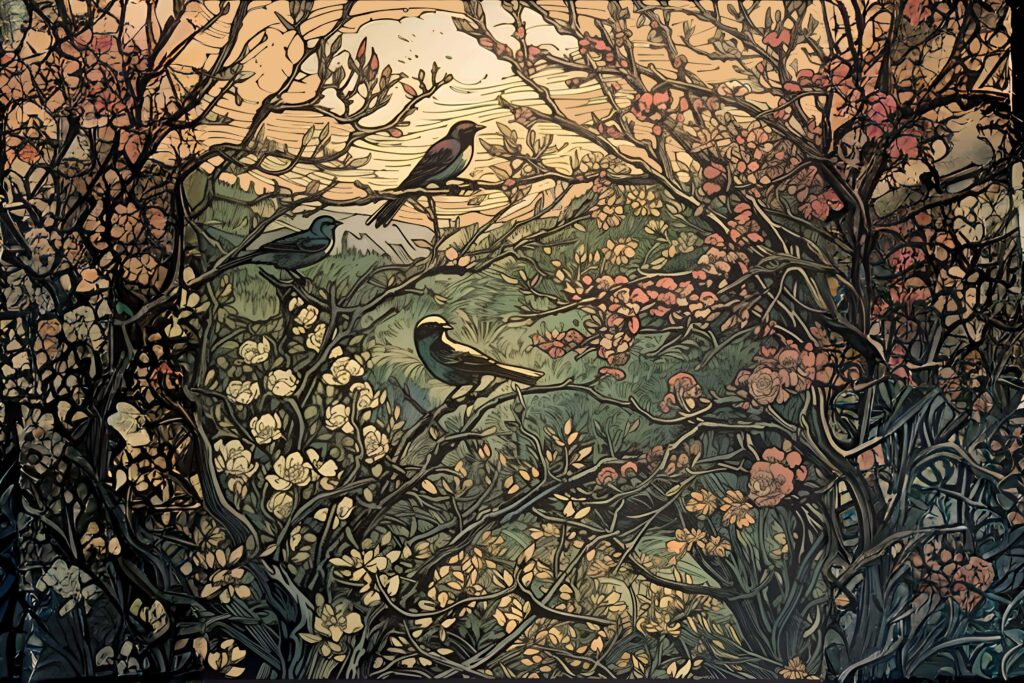The heavy rains have ended. The air has warmed enough that I slept last night with my window open, wide enough to hear the mute night reveal the first notes of the woods’ nocturnal symphony. This symphony will play through all its moods and movements until it reluctantly fades beneath autumn’s falling leaves.
It begins with the bell-like call of a single Spring Peeper frog, lonely somewhere in the darkness.
The retreating week of rain has left the stream swollen and muddy. It has also formed deep puddles in low ground—pools that won’t drain until spring rains subside and summer heat dries the waterlogged earth. These puddles hold magic. Naturalists call them vernal pools, and they teem with life.
Because they dry and disappear, fish cannot survive in these waters. With that threat removed, the pools become complete worlds—entire ecosystems, perfect nurseries for forest amphibians. These temporary miracles, often no deeper than a few inches, cradle larval insects, the eggs and young of frogs, toads, and salamanders, even tiny fairy shrimp—each feeding and being fed upon in the intricate web of being. It is likely at the edge of one such forest puddle where this first Spring Peeper sings out for love, calling for a mate, ensuring the next generation, and providing next spring’s opening notes.
Soon, its lonely voice will be joined by others, a swelling chorus of males calling to females under the moonlit sky. Crickets will take up the second movement as the temperature warms, banishing winter’s silence. These first sounds of the spring night always surprise me—not because they return, but because I have somehow forgotten, during the long winter months, how much I miss them. For me, falling asleep cradled in the nighttime sounds of a living earth is a special form of bliss.
In this fleeting world, only a few weeks will pass before approaching summer dries these nursery ponds, dissolving the worlds they hold. Everything must change. Pollywogs of toads and frogs, young salamanders, and larval insects must transform. Those who escape garter snakes and hungry opossums will begin their next lives. As water levels shrink, tiny limbs grow. Fishlike tails retract. Lungs replace gills. Fairy shrimp lay their drought-resistant eggs. Larval insects take to the air.
By the time the pool is dry, the life it held will have readied itself to fly, crawl, or hop away from its collapsing world and enter a wider one.
Tonight, I’ll sleep with my window open again, listening for that single, bell-clear voice calling through the darkness—announcing not just the arrival of spring but the eternal, unbroken cycle of becoming of which I am a part.

One Response
Bill your entry tonight was so meaningful the crickets, frogs and salamanders waking up to spring.
I love your writings and how you are so appreciative of nature. They have a simplicity which we need in this constantly changing environment.
DebbySaliba